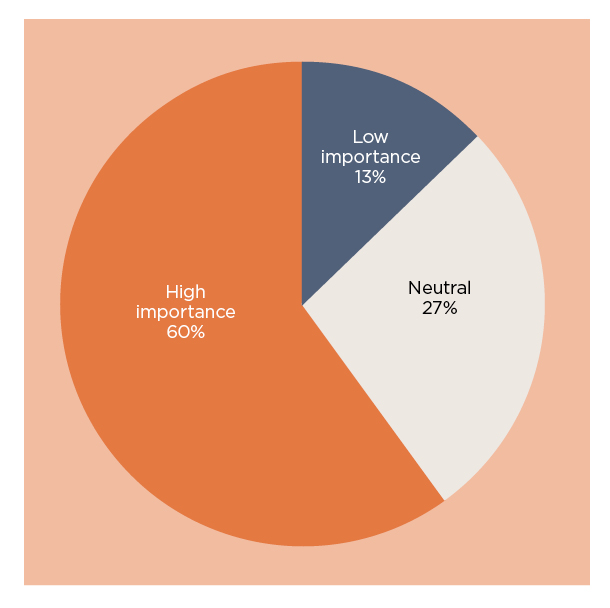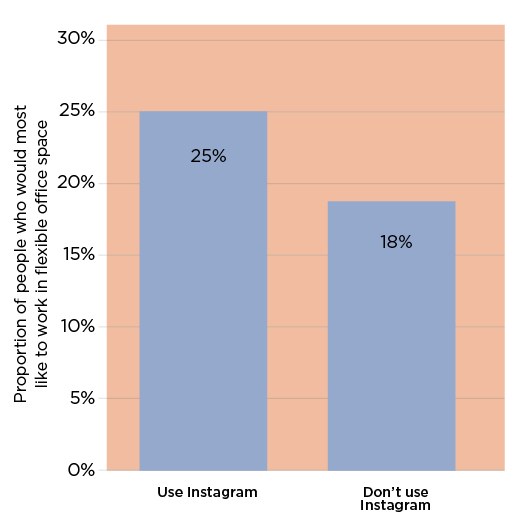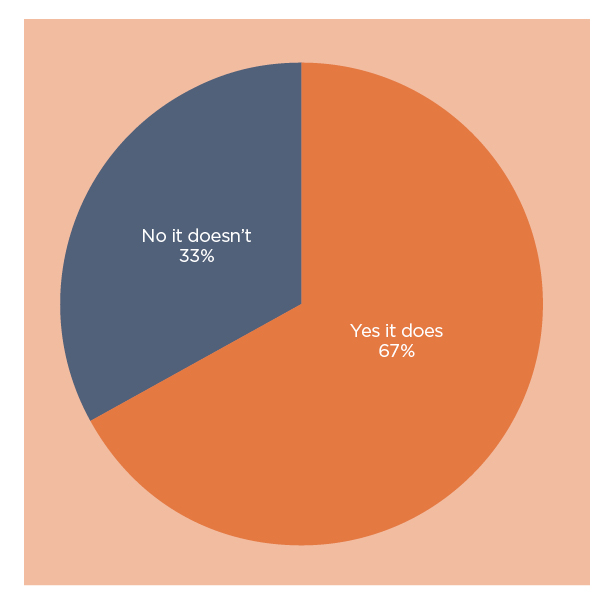New technologies are disrupting office workers’ demands from the workplace, but compared with other commercial real estate sectors, the office sector has traditionally been slower to embrace new technologies. The Savills What Workers Want survey questioned more than 11,000 European office workers to uncover five emerging tech disruptors shaping the future of the workplace.
1. Would you find a workplace smartphone app useful?
A mobile phone can act as an aid and a distraction in the workplace, but around half of Europe’s office workers reported that they would consider a workplace smartphone app useful. Services usually include access to and from the building, landlord events, laundry service, booking meeting rooms and identifying vacant workspaces.
However, the results show that it was the managing directors and chief executives (66%) who would derive the most use from the app. Indeed, only 39% of those in non-managerial roles reported that they would consider the app useful. If managers are given consent to track employee location through a workplace smartphone app, could this increased visibility be the first step towards solving the productivity puzzle?
Would find a workplace smartphone app useful (%)
2. How important is an office’s environmental performance to workers?
Investors are placing more emphasis on enhancing the environmental performance of their building. And with good reason. Some 60% of Europe’s office workers consider the environmental performance of the building to be of high importance, none more so than Portuguese, Spanish and Italian workers. Employers who want to attract the best talent will review environmental, social and governance scores (ESG) on the office space they lease, and landlords will also ensure that assets adhere to ESG criteria.
Importance of the environmental performance of the building
Source: Savills Research
3. What does the Instagram generation find important?
Having a visually appealing workspace is now more important than ever in the race to attract and retain talent. Of those office workers who regularly use Instagram, 25% would most like to work in flexible office space, while of those who don’t use Instagram, only 18% would most like to work in flexible office space.
Providing an instagrammable fit-out is now more important than ever. We have seen this develop prominently in the retail and leisure sector and it is something that flexible office providers will continue to focus on in order to distinguish themselves and accelerate their client base. Workers’ endorsements on social media accounts are fast becoming an avenue for the growth of the serviced office sector.
Workers who use Instagram are more likely to prefer flexible office space than non-users
Source: Savills Research
4. How is ecommerce impacting the workplace?
Ecommerce is a not only a disruptor for the retail and industrial sectors, but for the office sector too. Office workers are increasingly shopping online and having goods delivered to their workplace. However, only 36% of Europe’s workers are satisfied with the provision of parcel delivery and collection lockers in their workspace. The UK (27% satisfied) and the Netherlands (26% satisfied) were among the least satisfied workers in Europe and, by no coincidence, have the highest online retail penetration rates. Polish workers, on the other hand, currently buy proportionally less online and are therefore more content with the allocation of parcel delivery space.
Landlords and tenants should reconsider whether their ground and lower floors are being used most efficiently, or whether this space could be adapted to provide more parcel delivery areas to meet the end users’ demands.
Satisfaction of workers with parcel delivery and collection lockers at their workplace
5. Are workers provided with the relevant technology to work productively?
The shift to flexible working in itself is a disruptor to the office market. Average lease lengths have shortened and leasing transactions for smaller units have fallen in markets where flexible office growth has been more pronounced.
However, having the relevant technology is essential for flexible working and one-third of respondents do not feel they have the technology to work flexibly. Quality of wifi is the second most important factor for workers for a number of applications such as cloud-based systems which allow workers to access files from anywhere. Tenants will seek WiredScore certification as a signal for digital connectivity in order to ensure employees are at their most productive.
Does your workplace provide the relevant technology to allow you to work flexibly?
Source: Savills Research
To read the full Savills What Workers Want survey, click here.







